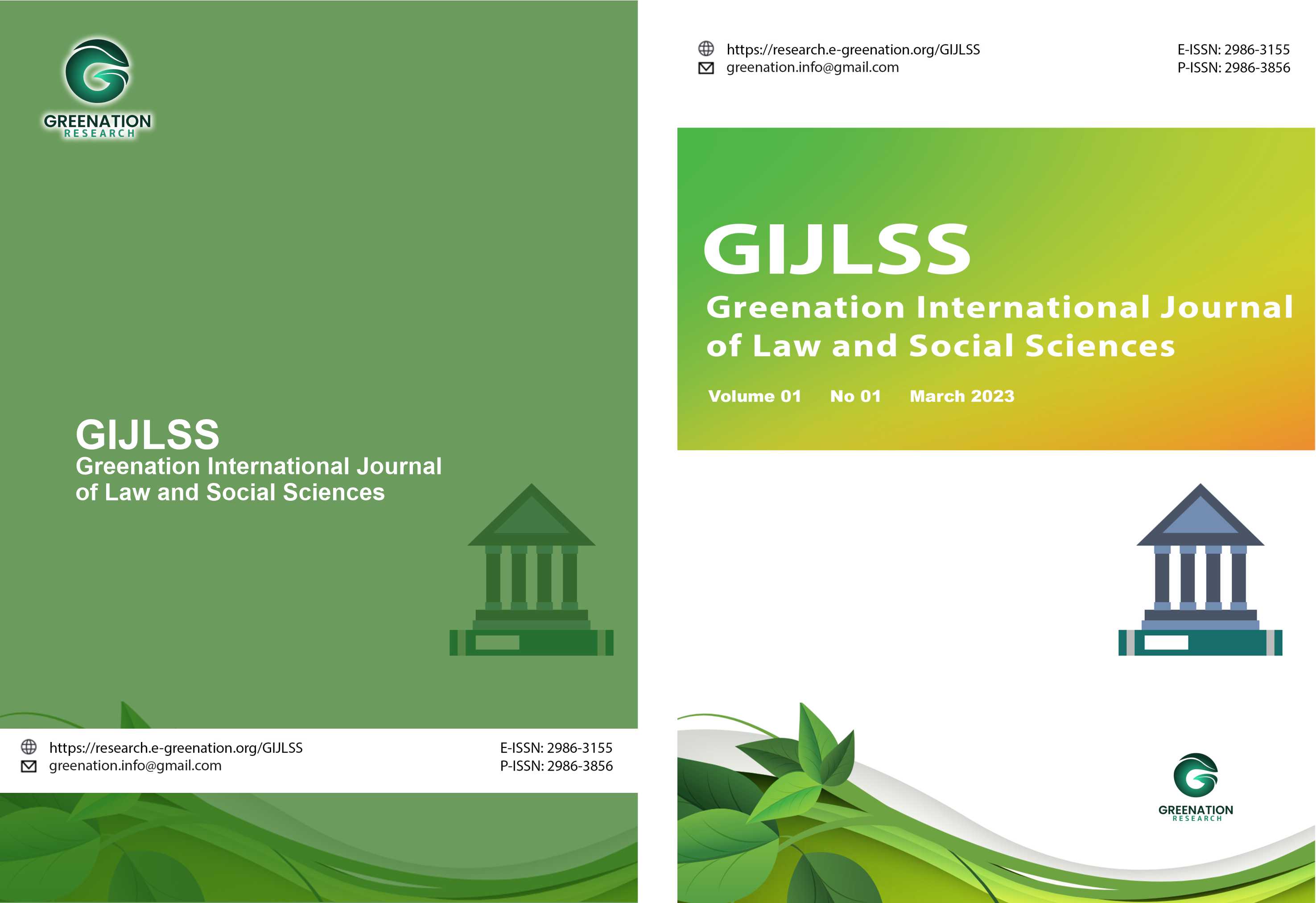Modern Governance of Hajj and Umrah: Digital Innovation and Legal Protection for Pilgrims
DOI:
https://doi.org/10.38035/gijlss.v3i3.583Keywords:
Hajj Governance, Digital Innovation, Legal Protection, Siskohat, Umrah FraudAbstract
The administration of Hajj and Umrah in Indonesia faces complex governance challenges, such as extremely long pilgrim queues, weak supervision of Umrah Travel Organizers (PPIU), and the increasing number of fraud cases that harm pilgrims. The repeated failures of travel agencies to properly facilitate or repatriate pilgrims highlight the urgent need to strengthen legal protection mechanisms. In response, the government has promoted the modernization of governance through digital innovation, aligning with Saudi Arabia’s vision of digital transformation. This digitalization serves a dual purpose: enhancing the efficiency and transparency of public services while simultaneously reinforcing the state’s regulatory and control functions over private organizers. This study aims to analyze the modernization of Hajj and Umrah governance through digital innovation, evaluate the effectiveness of digital systems such as the Integrated Hajj Computerization System (Siskohat) in improving services and oversight, and examine the adequacy of the legal framework particularly Law No. 8 of 2019 in providing legal protection for pilgrims. The research employs a normative juridical method, analyzing the legal framework governing Hajj and Umrah administration, including Law No. 8 of 2019, the Consumer Protection Act, and derivative regulations issued by the Ministry of Religious Affairs concerning PPIU standards and certification. Digital innovations such as Siskohat have successfully integrated registration, payment, and data validation processes, significantly improving efficiency and transparency. New platforms like SERAMBI facilitate online licensing and accreditation for PPIUs, transforming the traditional periodic-manual supervision model into a system of continuous digital surveillance. Normatively, Law No. 8 of 2019 provides a strong legal foundation, including severe criminal sanctions for organizers engaged in fraud or negligence. However, there remains a gap between the availability of data generated by digital systems and the effectiveness of law enforcement in practice, as fraudulent activities continue to occur. The governance of Hajj and Umrah is thus undergoing a transformation toward a data-driven model characterized by greater modernity and transparency. Despite robust digital innovations and a solid legal framework, the protection of pilgrims remains suboptimal due to weak law enforcement. It is therefore recommended that the Ministry of Religious Affairs establish a collaborative task force with the National Police to proactively utilize data from Siskohat and other digital systems for investigation and strict enforcement against problematic PPIUs, thereby ensuring that legal sanctions are applied effectively.
References
Akbar, F. M. A. (2024). METODE KUALITATIF DAN KUANTITATIF PADA STUDI ISLAM. Ar Rasyiid: Journal of Islamic Studies, 2(2), 95-112.
Arsad, A. (2024). Implementasi Kebijakan Pengawasan Penyelenggaraan Ibadah Haji dan Umrah Oleh Kementerian Agama Kota Makassar. Tesis, UIN Alauddin Makassar.
BPKH (2024). Laporan Tahunan Pengelolaan Dana Haji dan Umrah.
Cahyani, S., & Nurabiah. (2024). Penerapan Sistem Informasi Akuntansi Menggunakan Software Accurate Dalam Pengambilan Keputusan UMKM di Kota Mataram. Jurnal MD, 7(1).
Dirwanto, D. (2025). Manajemen Haji dan Umrah Indonesia: Problematika Kebijakan dan Peningkatan Tata Kelola. Jurnal Inferred Governance, 4(2).
Fuadi, M. N. (2024). Analisis Efektivitas Sistem Informasi Komputerisasi Haji Terpadu (Siskohat) Dalam Penyelenggaraan Ibadah Haji Pada Kantor Kementerian Agama Kabupaten Hulu Sungai Utara. Jurnal Ali I’darabalad, 11(2).
JDIH Tegal (2020). Tindak Pidana Dalam Penyelenggaraan Ibadah Haji dan Umrah Perspektif Undang-Undang Nomor 8 Tahun 2019. JDIH Pemerintah Kabupaten Tegal.
Kemenag PHU (2023). Sinergi dengan Polri, Kemenag Siapkan Diklat Penyidik Masalah Umrah dan Haji Khusus. Direktorat Jenderal Penyelenggaraan Haji dan Umrah.
Kemenag PHU (2024). SISKOHAT, Ujung Tombak Layanan Data Jemaah Haji. Direktorat Jenderal Penyelenggaraan Haji dan Umrah.
Nugroho, D. S. D., & Pratama, M. A. (2024). Metode Normatif dan Empiris dalam Penelitian Hukum: Studi Eksploratif di Indonesia. Public Sphere Jurnal Sosial Politik Pemerintahan dan Hukum, 3(3).
Nusuk (2024). Official Platform for Hajj and Umrah. Diakses dari https://www.nusuk.sa.
OJK (2024). Otoritas Jasa Keuangan: Pengawasan Industri Jasa Keuangan.
Pekanbaru (2023). Studi Kasus Efektivitas Siskohat Kankemenag Kota Pekanbaru.
PMA No. 5 Tahun 2021. Peraturan Menteri Agama Nomor 5 Tahun 2021 tentang Standar Kegiatan Usaha Penyelenggaraan Perjalanan Ibadah Umrah dan Penyelenggaraan Ibadah Haji Khusus.
PMA No. 8 Tahun 2024. Peraturan Menteri Agama Nomor 8 Tahun 2024 tentang Tata Kelola Kelembagaan KUA.
Ristiawati, D. (2024). Analisis Yuridis Implementasi Penggunaan Jasa Penyelenggara Perjalanan Ibadah Umrah (PPIU) pada Pelaksanaan Umrah Mandiri. Jurnal Comparativa, 6(1).
Rudi. (2024). Implementasi Undang-undang Nomor 08 Tahun 2019 Tentang Penyelenggaraan Haji Dan Umrah Di Kementerian Agama Provinsi Riau Perspektif Fiqh Siyasah. Skripsi, UIN Sultan Syarif Kasim Riau.
UMA Journal. (2024). Ketentuan Pidana Terhadap Penipuan Dengan Menggunakan Identitas Palsu Ditinjau Menurut Peraturan Perundang-Undangan di Indonesia (Kajian Putusan Nomor 192/PID/2023/PT BJM). Jurnal Mercatoria, 17(1).
Undang-Undang Nomor 8 Tahun 1999 tentang Perlindungan Konsumen.
Undang-Undang Nomor 8 Tahun 2019 tentang Penyelenggaraan Ibadah Haji dan Umrah.
YLKI (2024). Advokasi Konsumen dan Pengawasan Keuangan Biro Perjalanan.
Downloads
Published
How to Cite
Issue
Section
License
Copyright (c) 2025 Singgih Januratmo

This work is licensed under a Creative Commons Attribution 4.0 International License.
Copyright :
Authors who publish their manuscripts in this journal agree to the following conditions:
- Copyright in each article belongs to the author.
- The author acknowledges that the Greenation International Journal of Law and Social Sciences (GIJLSS) has the right to be the first to publish under a Creative Commons Attribution 4.0 International license (Attribution 4.0 International CC BY 4.0).
- Authors can submit articles separately, arrange the non-exclusive distribution of manuscripts that have been published in this journal to other versions (for example, sent to the author's institutional repository, publication in a book, etc.), by acknowledging that the manuscript has been published for the first time at GIJLSS.























